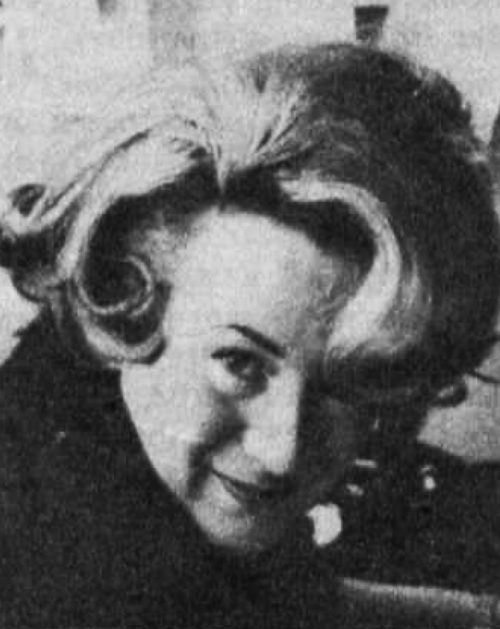Woman behind the headlines
The editor of The Headliners on her greatest scoop


A WOMAN whose actions would echo round the world in a few hours’ time, drove her car up to the gates of Wakefield prison.
“Friend or relative?” asked a warder.
“Friend,” she replied.
“OK,” he said and led her to a visiting room.
Inside, a pale man sat at a bare table. His face had been prominently featured in newspapers and magazines throughout the world. He wore a navy-blue, battledress-style uniform and white shirt. He fingered round-lensed, steel-rimmed spectacles. He had been “inside” for eight years.
They exchanged pleasantries and she handed him the book he had asked her to bring. Boris Pasternak’s “Doctor Zhivago.” They talked earnestly for half an-hour, the woman memorising everything he said. A warder stood stolidly a few feet away.

Daily Express reporter Esther Rose had become the first journalist to interview Dr. Klaus Fuchs, after the atom scientist had been sentenced to 14 years’ imprisonment in 1950 for revealing atom secrets to the Russians.
Next day, Esther’s paper splashed a banner headline across its front-page: “FUCHS SPEAKS IN JAIL”. That headline went round the world. It was printed in nearly every language except Russian.
Esther, now editor of Granada’s The Headliners (Wednesdays), recalled: “They raised hell in the House of Commons. Everybody wanted to know how I’d got away with it. It was dynamite. It’s still a trade secret. They never even asked me why, if I was a friend, I’d suddenly shown up after eight years. They never examined the book. For all they knew, I might have been someone from ‘the other side’.”
Corridors of power buzzed with speculation. The Fuchs’ case had been one of the biggest spy trials of the first half of the 20th century and British security services hoped that the fuss was all over. In fact, it had begun again.
Fuchs told Esther: “I am going to East Germany when I am free.”
A year later, he did so. Esther Rose remains the only reporter to have spoken at length with him. Her persistence at Wakefield paid off.
Similar application stamps her work as editor of The Headliners. She retains her flair for inspiring confidences and obtaining colourful material. She defined the art of editing: “It’s a sort of seventh sense about what can be done about what will make compulsive viewing. It’s a question of picking the right stories, hammering them into shape and presenting them in the best way.
“Television and newspaper editing are equally difficult but in different ways. In television you must explain to the eye — you must let people see as much as possible. What you do must be seen to be done.”
Esther is amused by the fact that she had to leave newspapers to become an editor. Her uncle was Henry Rose, Northern Sports Editor of the Daily Express, who died in the Munich air crash, and her husband, Harry Whewell, is News Editor of The Guardian.
But she consoles herself with the thought that it was an ex-newspaper man, Tim Hewat, formerly of the Daily Express, who made her editor of The Headliners.
“He proved himself equally at home with the Press and television,” she said.
There are two other Tims in this energetic woman’s life: Tim Thomas, the young graduate who introduces The Headliners, and, most important of all, her three year old son Tim. “Mine’s called Tim-Tim to distinguish him from the others,” she said.
Esther manages to preserve a nice balance between her home life and work with The Headliners — proving that “editing can be a woman’s world, despite what some of the men say.”



